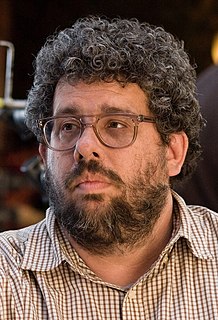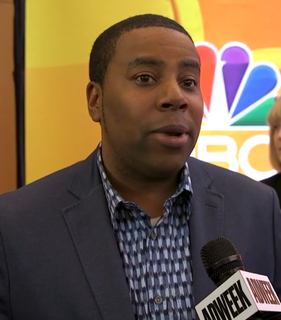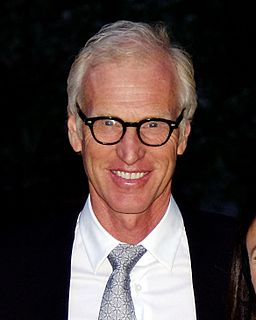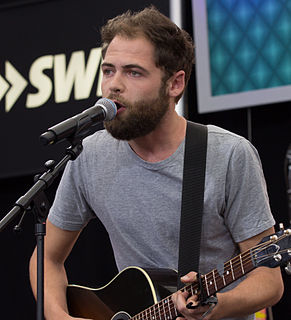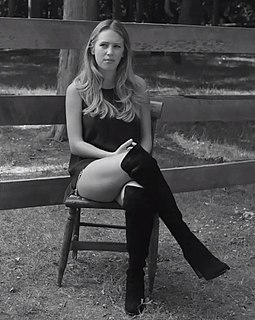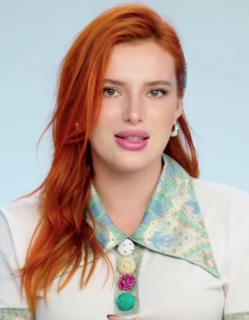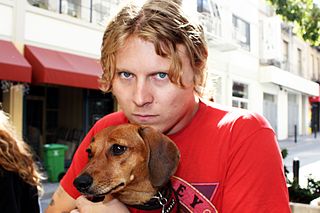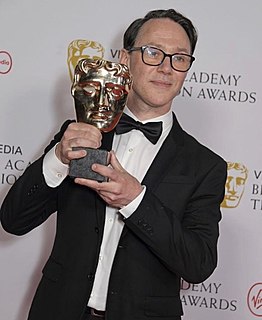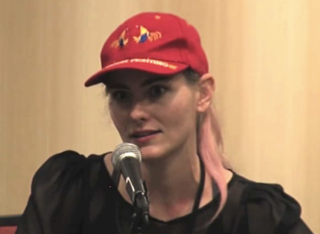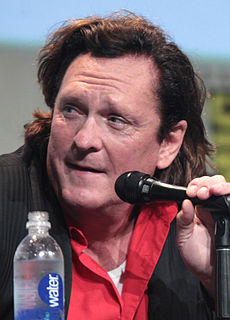A Quote by Jarvis Cocker
It's funny how you can intensely investigate one very particular thing, and then it can lead you to other things through links and stuff like that. It's like you're going on this selective, very precise detour. But then it is strange because with it being so quick, there must be a difference.
Related Quotes
I got good at trying to throw a voice on a character from the very beginning as opposed to like reading it and sitting with it and mulling over it and stuff like that just try to read what it is and then try to put a funny voice to it like as soon as possible and stuff like that. Once you get laughs with your voice then you can start thinking about, you know the physical characteristics and how they might walk or if they stick out their buck teeth or if they wear an afro and stuff like that. I think like finding the voice of the character helps to like build the wardrobe and everything else.
In LA you can't tell the teenagers and the moms apart, which is so strange to me. And then it's like, "Who is leading who?" Are the moms emulating the daughters? In which case we're going backwards - that's not how it goes - the mothers teach the daughters how to be. It's a very strange thing to me.
Maybe when I was a kid, when you have those crazy dreams about what music is going to be like - a string of No. 1 hits, a limo, and a fairground in your back garden - and then you start as a musician, and you realize very, very quickly, that's not how things work. So I just let go of all that stuff.
David's [Cunningham] a very interesting character. He has more integrity than is good for him. So, everything he did after that sort of undermined what he'd done. Other people who kind of took life more cheaply, would have really gone for it. David almost did everything he could to scupper the whole thing, which I very much admire, but of course it was deeply irritating then, because we wanted to make a bit of money! So we made this very catchy tune and then he added a bunch of weird stuff which was all very strange.
I do believe in the myth of San Francisco and there is a force, a magical kind of thing there. That feeling of like, I've never been to another place like it. It doesn't even feel Californian. Even how it's laid out physically, it's very strange. Like, the weather patterns don't make sense. They do scientifically, but in a practical way it doesn't make any sense. And that weirdness, it really creates some weird thing in the air. But it is you know, on a practical level, it's very expensive, and it's a very business-oriented place, too, and there's a lot of that stuff going on.
Live theatre is great. I loved doing the League live because you get that element of spontaneity, but then when I'm doing live I start to crave the precision of filming. It's a different discipline; it's like a scalpel and you're very precise suddenly. It's scary as well because you think this is it, this is my one go at making it if I can the best it can be, because this is how it's going to be remembered and rendered and left on this film indelibly. And people are going to look back on this and that's that.
That's what all these studios do: They recruit people who've seen certain films. It's this weird, fake science-y thing the studios call a "tool." That's a very scary process, because it can be used in odd ways. But then there's focus groups and stuff like that. I was so nauseous and terrified, and then you get the cards: very good, good, recommend.
My career has been very strange. My career is like a heart monitor. I get involved in a good project now and then to keep things going. And then I make things that I work on that I hope are going to be good so I can make a living and keep a roof over the heads of those little monsters I have in my house.

